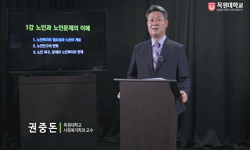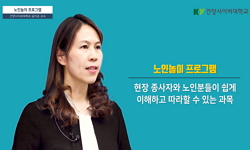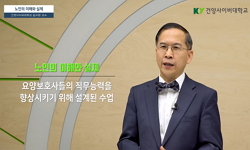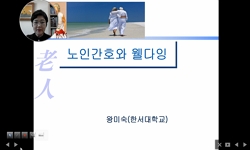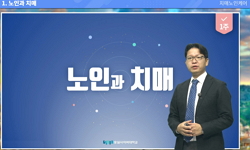Objectives:Among non-pharmaceutical measures for preventing cognitive impairment, involving in social activities is known to be very effective. We tried to examine the correlation between social activity and cognitive function. Methods:This stu...
http://chineseinput.net/에서 pinyin(병음)방식으로 중국어를 변환할 수 있습니다.
변환된 중국어를 복사하여 사용하시면 됩니다.
- 中文 을 입력하시려면 zhongwen을 입력하시고 space를누르시면됩니다.
- 北京 을 입력하시려면 beijing을 입력하시고 space를 누르시면 됩니다.

한국 지역사회 노인의 사회적 활동과 인지기능의 연관성 = Relationship between Social Activity and Cognitive Function in Korean Elderly
한글로보기https://www.riss.kr/link?id=A60194935
- 저자
- 발행기관
- 학술지명
- 권호사항
-
발행연도
2012
-
작성언어
-
- 주제어
-
KDC
510
-
등재정보
KCI등재후보
-
자료형태
학술저널
- 발행기관 URL
-
수록면
38-43(6쪽)
-
KCI 피인용횟수
7
- 제공처
-
0
상세조회 -
0
다운로드
부가정보
다국어 초록 (Multilingual Abstract)
Objectives:Among non-pharmaceutical measures for preventing cognitive impairment, involving in social activities is known to be very effective. We tried to examine the correlation between social activity and cognitive function.
Methods:This study was based on the Suwon Project, a cohort comprising of non-random convenience samples of ethnic Koreans aged 60 years and above. All the subjects completed the study questionnaire which included demographic characteristics, current and past history of illnesses, drug history, Korean version of Mini Mental State Examination (K-MMSE), Korean version of Short Form Geriatric Depression Scale, and Beck Anxiety Inventory. We checked the time consumed in each 9 social activities through the checklist.
Results:On multiple logistic regression analysis, the total time spent in social activities wasinversely associated with the K-MMSE score after adjusting confounding variables like age, sex, education level, depression, anxiety and vascular risk factor (β= -0.041, p=0.024). On the other hand, correlation was found between K-MMSE score and time spent in participating in religious party (β=0.053, p=0.003) as well as time spent in elder’s university (β=0.040, p=0.025) after adjustingage, sex, education, depression, anxiety and vascular risk factor.
Conclusion:Our results suggest that involving in quality social activities might be more effective in improving cognitive function than spending longer total time in any social activity.
목차 (Table of Contents)
- 서론
- 대상 및 방법
- 결과
- 고찰
- Acknowledgments
- 서론
- 대상 및 방법
- 결과
- 고찰
- Acknowledgments
- REFERENCES
참고문헌 (Reference)
1 Hultsch DF, "Use it or lose it: engaged lifestyle as a buffer of cognitive decline in aging" 14 : 245-263, 1999
2 Menec V, "The relation between everyday activities and successful aging: a 6-year longitudinal study" 58 : 74-82, 2003
3 Sapolsky RM, "The neuroendocrinology of stress and aging: the glucocorticoid cascade hypothesis" 7 : 284-301, 1986
4 Plassman BL, "Systematic review: factors associated withrisk for and possible prevention of cognitive decline inlater life" 153 : 182-193, 2010
5 Bassuk SS, "Social disengagement and incident cognitive decline in community-dwelling elderly persons" 131 : 165-173, 1999
6 Cho MJ, "Research on prevalence rate of dementia inthe elderly" Seoul National University Hospital 2008
7 Lee Y, "Research on effectiveness of cognitive health promotionin the elderly and development of management guidelines" Ajou University 2009
8 Wilson RS, "Proneness to psychological distress is associated with risk of Alzheimer’s disease" 61 : 1479-1485, 2003
9 Plassman BL, "Prevalence of cognitive impairment without dementia in the United States" 148 : 427-434, 2008
10 Graham JE, "Prevalence and severityof cognitive impairment with and without dementia inan elderlypopulation" 349 : 1793-1796, 1997
1 Hultsch DF, "Use it or lose it: engaged lifestyle as a buffer of cognitive decline in aging" 14 : 245-263, 1999
2 Menec V, "The relation between everyday activities and successful aging: a 6-year longitudinal study" 58 : 74-82, 2003
3 Sapolsky RM, "The neuroendocrinology of stress and aging: the glucocorticoid cascade hypothesis" 7 : 284-301, 1986
4 Plassman BL, "Systematic review: factors associated withrisk for and possible prevention of cognitive decline inlater life" 153 : 182-193, 2010
5 Bassuk SS, "Social disengagement and incident cognitive decline in community-dwelling elderly persons" 131 : 165-173, 1999
6 Cho MJ, "Research on prevalence rate of dementia inthe elderly" Seoul National University Hospital 2008
7 Lee Y, "Research on effectiveness of cognitive health promotionin the elderly and development of management guidelines" Ajou University 2009
8 Wilson RS, "Proneness to psychological distress is associated with risk of Alzheimer’s disease" 61 : 1479-1485, 2003
9 Plassman BL, "Prevalence of cognitive impairment without dementia in the United States" 148 : 427-434, 2008
10 Graham JE, "Prevalence and severityof cognitive impairment with and without dementia inan elderlypopulation" 349 : 1793-1796, 1997
11 Niti M, "Physical, social and productive leisure activities, cognitive decline and interaction with APOE-Є4 genotype in Chinese older adults" 20 (20): 237-251, 2008
12 Luck T, "Mild cognitive impairmentin general practice: age-specific prevalence and correlateresults from the German study on ageing, cognition anddementia in primary care patients (Age- CoDe)" 24 : 307-316, 2007
13 Kivipelto M, "Midlife vascular risk factors and Alzheimer’s disease in later life: longitudinal, population based study" 322 : 1447-1451, 2001
14 Launer LJ, "Midlife blood pressure and dementia: the Honolulu-Asia aging study" 21 : 49-55, 2000
15 Lee Y, "Lifestyle recommendations for dementia prevention: PASCAL" 13 : 61-68, 2009
16 Wang JY, "Leisure activity and risk of cognitive impairment: the Chongqing aging study" 66 : 911-913, 2006
17 Singh-Manoux A, "Leisure activities and cognitive function in middle age: evidence from the Whitehall II study" 57 : 907-913, 2003
18 Bielak AAM, "It’s never too late to engage in lifestyle activities: Significant concurrent but not change relationships between lifestyle activities and cognitive speed" 62 : 331-339, 2007
19 Churchill JD, "Exercise, experience and the aging brain" 23 : 941-955, 2002
20 Karen A, "Effects of social integration on preserving memory function in a nationally representative US elderly population" 98 : 1215-1220, 2008
21 Bae JN, "Development of the Korean versionof the Geriatric Depression Scale and its short form amongelderly psychiatric patients" 57 : 297-305, 2004
22 Launer LJ, "Demonstrating the case that AD is a vascular disease: epidemiologic evidence" 1 : 61-77, 2002
23 Belanoff JK, "Corticosteroids and cognition" 35 : 127-145, 2001
24 Kareholt I, "Baseline leisure time activity and cognition more than two decades later" 26 : 65-74, 2011
25 Beck AT, "An inventoryfor measuring clinical anxiety: psychometric properties" 56 : 893-897, 1988
26 Fratiglioni L, "An active and socially integrated lifestyle in late life might protect against dementia" 3 : 343-353, 2004
27 Aartsen MJ, "Activity in older adults: cause or consequence of cognitive functioning? A longitudinal study on everyday activities and cognitive performance in older adults" 57 : 153-162, 2002
28 Kang Y, "A validity study on the Koreanmini-mental state examination (K-MMSE) in dementiapatients" 15 : 300-308, 1997
29 Yook SP, "A clinical study on the Korean versionof Beck Anxiety Inventory: comparative study of patientand non-patient" 16 : 185-197, 1997
30 한문식, "2008년도 노인실태조사: 전국 노인 생활실태 및 복지욕구조사" 보건복지부,계명대학교산학협력단 2009
동일학술지(권/호) 다른 논문
-
- 대한노인정신의학회
- 홍나래(Narei Hong)
- 2012
- KCI등재후보
-
- 대한노인정신의학회
- 이동영(Dong Young Lee)
- 2012
- KCI등재후보
-
ADNI 연구에서 알츠하이머병 및 경도인지장애의 뇌영상 표지자
- 대한노인정신의학회
- 이준영(Jun-Young Lee)
- 2012
- KCI등재후보
-
뇌척수액과 말초혈액 내 알츠하이머병의 생화학적 생체표지자
- 대한노인정신의학회
- 이영민(Young Min Lee)
- 2012
- KCI등재후보
분석정보
인용정보 인용지수 설명보기
학술지 이력
| 연월일 | 이력구분 | 이력상세 | 등재구분 |
|---|---|---|---|
| 2027 | 평가예정 | 재인증평가 신청대상 (재인증) | |
| 2021-02-22 | 학술지명변경 | 외국어명 : Journal of Korean Geriatirc Psychiatry -> Journal of Korean Geriatric Psychiatry |  |
| 2021-01-01 | 평가 | 등재학술지 유지 (재인증) |  |
| 2018-01-01 | 평가 | 등재학술지 유지 (등재유지) |  |
| 2015-01-01 | 평가 | 등재학술지 선정 (계속평가) |  |
| 2013-01-01 | 평가 | 등재후보 1차 FAIL (등재후보1차) |  |
| 2012-01-01 | 평가 | 등재후보학술지 유지 (기타) |  |
| 2010-01-01 | 평가 | 등재후보학술지 선정 (신규평가) |  |
학술지 인용정보
| 기준연도 | WOS-KCI 통합IF(2년) | KCIF(2년) | KCIF(3년) |
|---|---|---|---|
| 2016 | 0.19 | 0.19 | 0.22 |
| KCIF(4년) | KCIF(5년) | 중심성지수(3년) | 즉시성지수 |
| 0.31 | 0.28 | 0.593 | 0 |





 KCI
KCI 스콜라
스콜라